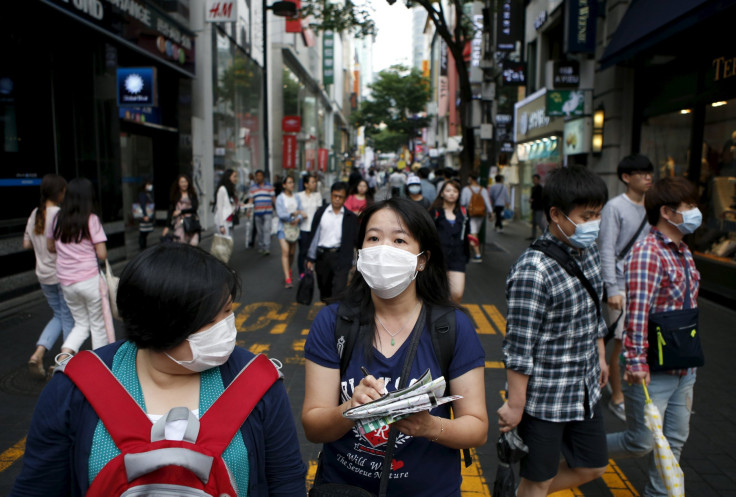MERS Outbreak: Over 20,000 Foreign Travelers Cancel Plans To Visit South Korea

At least 20,000 foreign travelers have canceled plans to travel to South Korea since an outbreak of the Middle East respiratory syndrome began 2 1/2 weeks ago, the Yonhap News Agency reported. The surge in cancellations comes as concern about the disease has increased since the first case was confirmed in South Korea May 20.
Travelers from China, Taiwan and Hong Kong canceled more than 85 percent of the trips, the Korean Tourism Organization said. "If the potentially deadly respiratory disease spreads further in South Korea, a considerable number of foreigners are expected to switch their destinations to Japan," a KTO official told Yonhap. At least 100,000 Chinese tourists are expected to cancel their trips through the end of the month.
As of Saturday, MERS had claimed five lives in South Korea, the Associated Press reported. South Korean health officials have also reported 14 new cases of MERS, bringing the total diagnosed with MERS to 64, Reuters reported.
First discovered in Saudi Arabia in 2012, MERS is caused by a virus similar to the one that triggered the 2002-04 outbreak of severe acute respiratory syndrome. However, MERS has a much higher death rate at 38 percent based on figures from the World Health Organization. There is no vaccine to protect against the disease.
In addition to those diagnosed with MERS, more than 1,800 people believed to be in contact with patients are being monitored or have been ordered to self-quarantine, the New York Times reported. One of the confirmed cases was a member of the Korean air force stationed in at a U.S. base in South Korea, CNN reported. There were no additional cases, but as a precaution, 64 troops and six civilians were quarantined.
The new cases bring the total number of global cases of MERS to 1,208, with at least 444 related deaths, Reuters reported.
© Copyright IBTimes 2024. All rights reserved.












